News
29.07.2025
Supporting Multilingual Classrooms: national training workshop (29-30 May 2025, Bratislava, Slovak Republic)
Local organiser: Denisa Ďuranová, National Institute of Education and Youth
ECML experts: Terry Lamb (United Kingdom), Mercè Bernaus (Spain)
Participants: teacher educators, policymakers, curriculum writers, school administrators/leaders, state school inspector
The workshop Supporting Multilingual Classrooms was held in Bratislava on 29 and 30 May 2025, organized by the National Institute of Education and Youth in the Slovak Republic (hereinafter NIVaM) and European Centre for Modern Languages of the Council of Europe (ECML). The workshop is carried out within the framework of the Innovative Methodologies and Assessment in Language Learning cooperation agreement between the ECML and European Commission.
The event was facilitated by the ECML experts –Terry Lamb, University of Westminster and Mercedes Bernaus, Universitat Autònoma de Barcelona, who provided participants with a wealth of practical knowledge and strategies for working in linguistically diverse classrooms.
During the introductory part, the facilitators focused on valuing attitudes towards diversity, analysing the language environment of the school and re-evaluating traditional approaches. At the same time, there was a discussion on supporting teacher self-confidence and ways to involve students’ language repertoire in teaching. One of the participants reflected: “I strongly identify with the concept of individual language repertoire, which is an integral part of our identity. As it has been said – if we ignore the languages of the learners, we ignore the children themselves. The workshop offered a range of inspiring, holistic and practical advice and strategies.”
The programme also included group work focusing on project proposals to be implemented by the participants in their practice. Each group presented their proposals and received valuable feedback. The participants appreciated the practical nature of the workshop: “Many useful activities were presented, I left with a positive feeling,” said one of the participants. Another added: “It was very useful to receive examples of materials and projects that help raise awareness among teachers, pupils and parents about the importance of respecting learner’s language needs.”
An important workshop objective was also to provide a space for networking and further collaboration between the participants from various organisations.
From February - December 2025, Supporting Multilingual Classrooms is organising national workshops in cooperation with national institutions in six countries: Armenia, Cyprus, Croatia, Portugal, Slovak Republic, and Spain. For the Slovak Republic, this was the fifth time this initiative has been carried out. The Slovak Republic has demonstrated a particularly innovative approach, organising the first joint international initiative between two countries in 2023, which has become an example of good practice. This year’s workshop debuted a specially designed module for teacher educators, adapted to the Slovak context.
Denisa Ďuranová, local organiser, 25 June 2025
ECML project website: Supporting multilingual classrooms, ECML-EC cooperation agreement 2025 "Innovative methodologies and assessment in language learning"
21.05.2025
Join the Romani-Plurilingual Policy Experimentation (RPPE) webinar

Part of the Closing Conference of RPPE in Bratislava
The Council of Europe is pleased to invite you to a webinar that marks the conclusion of the Romani-Plurilingual Policy Experimentation (RPPE), launched in 2022 in Greece, Slovak Republic and Slovenia. The RPPE has explored ways of using Romani language and culture to support the educational inclusion of Roma pupils in primary education.
Closely linked to the Council of Europe’s Recommendation on the importance of plurilingual and intercultural education for democratic culture (CM/Rec(2022)1), the RPPE has addressed the gap between policy and classroom practice by developing approaches and activities specific to each school’s student cohort and context.
Highlights of the programme:
- Opening remarks – Sarah Breslin, Executive Director, European Centre for Modern Languages and Head of Language Policy, Council of Europe
- Overview of the RPPE and its objectives – David Little, Academic Coordinator
- Presentations by country teams from Greece, Slovak Republic, Slovenia
This webinar offers a unique opportunity to reflect on the practical application of the Council of Europe’s concept of plurilingual and intercultural education in schools and classrooms and to consider their relevance both for the educational inclusion of Roma pupils as well as of learners from other linguistic and cultural minorities.
Join us to learn, exchange and contribute to inclusive education.
Register here until 2 June 2025.
Source: Council of Europe Education Department, 20 May 2025
25.10.2023
FREPA, a framework of reference for pluralistic approaches to languages and cultures
Date and venue: 6-7 June 2023, Turčianske Teplice (Slovak Republic)
Local organiser: Dr. Jana Birova, University Professor (PhD) — Slovak Association of French Teachers, Nitra (Slovak Republic)
ECML experts: Ildikó Lőrincz (Hungary) and Jean-François de Pietro (Switzerland)
Participants: 20 teachers of English, French, Italian, Polish, Slovakian, Spanish and Ukrainian
The Slovak Association of French Teachers had the opportunity, with the support of the ECML, to organise a training workshop on "FREPA, a reference framework for pluralistic approaches to languages and cultures" in Turčianske Teplice (Slovak Republic) on 6 and 7 June 2023. The aim was to familiarise teachers with FREPA, explain the goals pursued, and present the specific and potential future uses of this tool.
Ildikó Lőrincz and Jean-François de Pietro, the two ECML trainers, enthusiastically demonstrated their in-depth knowledge to the participants. The teachers participated actively in the two-day training programme. The ECML, FREPA, and teachers' activities were presented during the first part (6 June), which was then followed by group work and an evaluation of the work carried out. The second part (7 June) covered topics such as the implementation of pluralistic approaches, curricula, and differences – Switzerland and the Slovak Republic were used as examples. The primary focus of the teachers was on creating activities and assessing them using the Slovak translations of the FREPA descriptors. The exercise clarified certain descriptors and highlighted the importance of each of them.
The workshop's intercultural approach made it possible for knowledge to be transferred effectively. The teachers made the decision to create a databank of activities. This new resource will be submitted to the ECML for inclusion in FREPA's teaching and learning materials database prior to being used in the classroom.
Jana Birova
Slovak version
Slovenská asociácia učiteľov francúzštiny mala možnosť v dňoch 6. – 7. júna 2023 vďaka podpore ECML zorganizovať podujatie pod uvedeným názvom, ktorého cieľom bolo naučiť učiteľov, čo to CARAP je, na čo je a na čo sa dá využiť. Experti vyslaní ECML, pani doc. Ildiko Lorinz a p. Prof. Jean-François de Pietro, preukázali veľké nadšenie a hlboké znalosti, o ktoré sa podelil s učiteľmi prihlásenými na podujatie. Svojím láskavým interkultúrnym prístupom ovplyvnili a naučili učiteľov také nové poznatky, že sa učitelia rozhodli zostaviť z nich banku aktivít a použiť ich vo svojich triedach, ale predtým, ich pošlú do ECML na možnú aktualizáciu. Ak aktivity prejdú kladným hodnotením v ECML, môžu sa stať súčasťou banky aktivít a materiálov carap.ecml. Učitelia sa riadili pripraveným programom a aktívne sa zúčastňovali na vzdelávaní obidva dni. Prvý deň 6. júna 2023 bol zameraný na prezentáciu aktivít ECML, FREPA a aktivity učiteľov. Skupinová práca a syntéza práce ukončili prvý deň vzdelávania.
Druhý deň školenia bol zameraný na témy ako implementácia pluralitných prístupov, učebné programy a rozdiely napr. Švajčiarsko a Slovensko. Učitelia celý deň pracovali na tvorbe aktivít a ich hodnotení pomocou deskriptorov preložených do slovenčiny. Niektorí učitelia položili niekoľko otázok o deskriptoroch. Odborníci promptne vysvetlili dôležitosť každého z nich.
Jana Birova
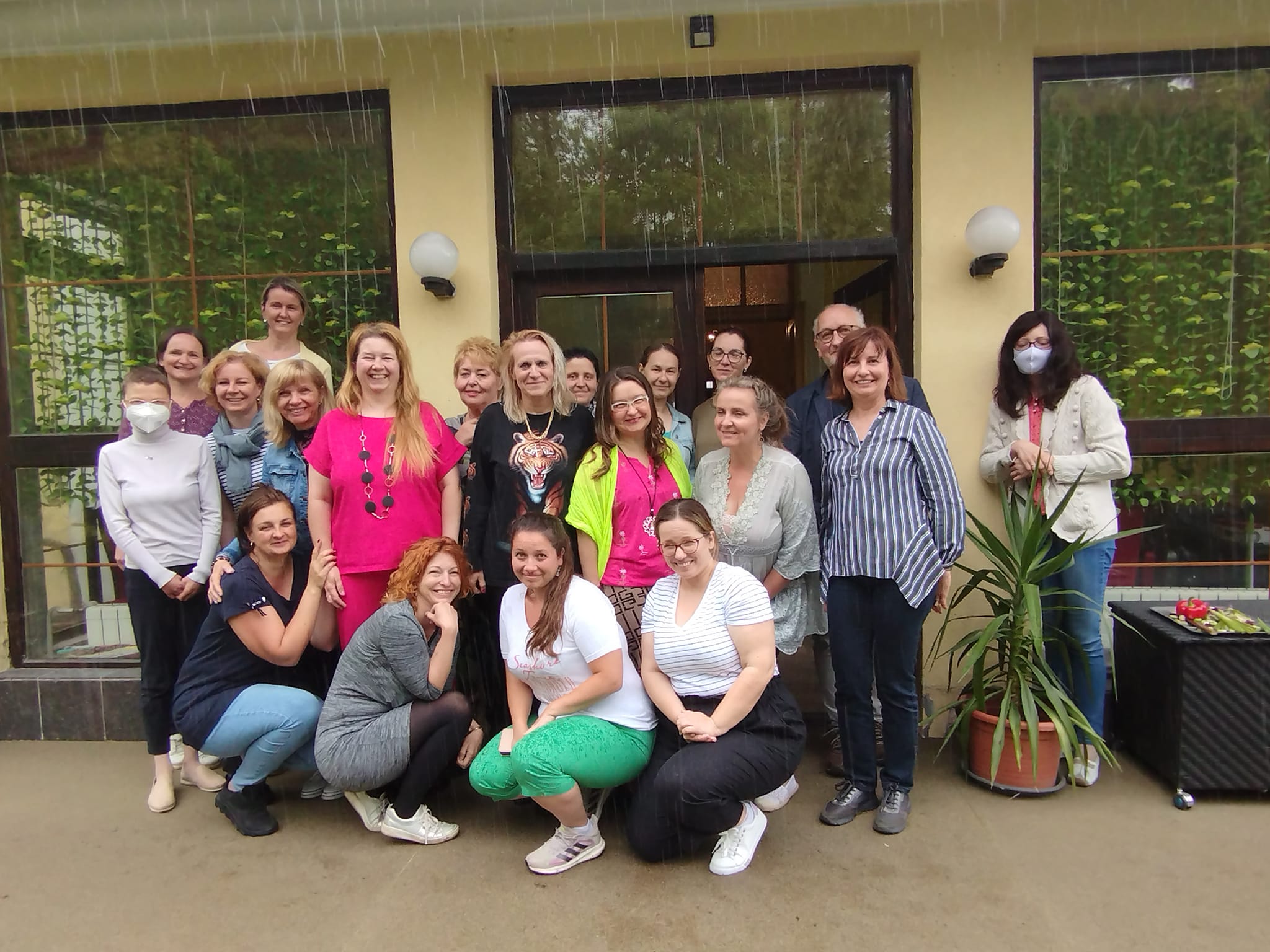
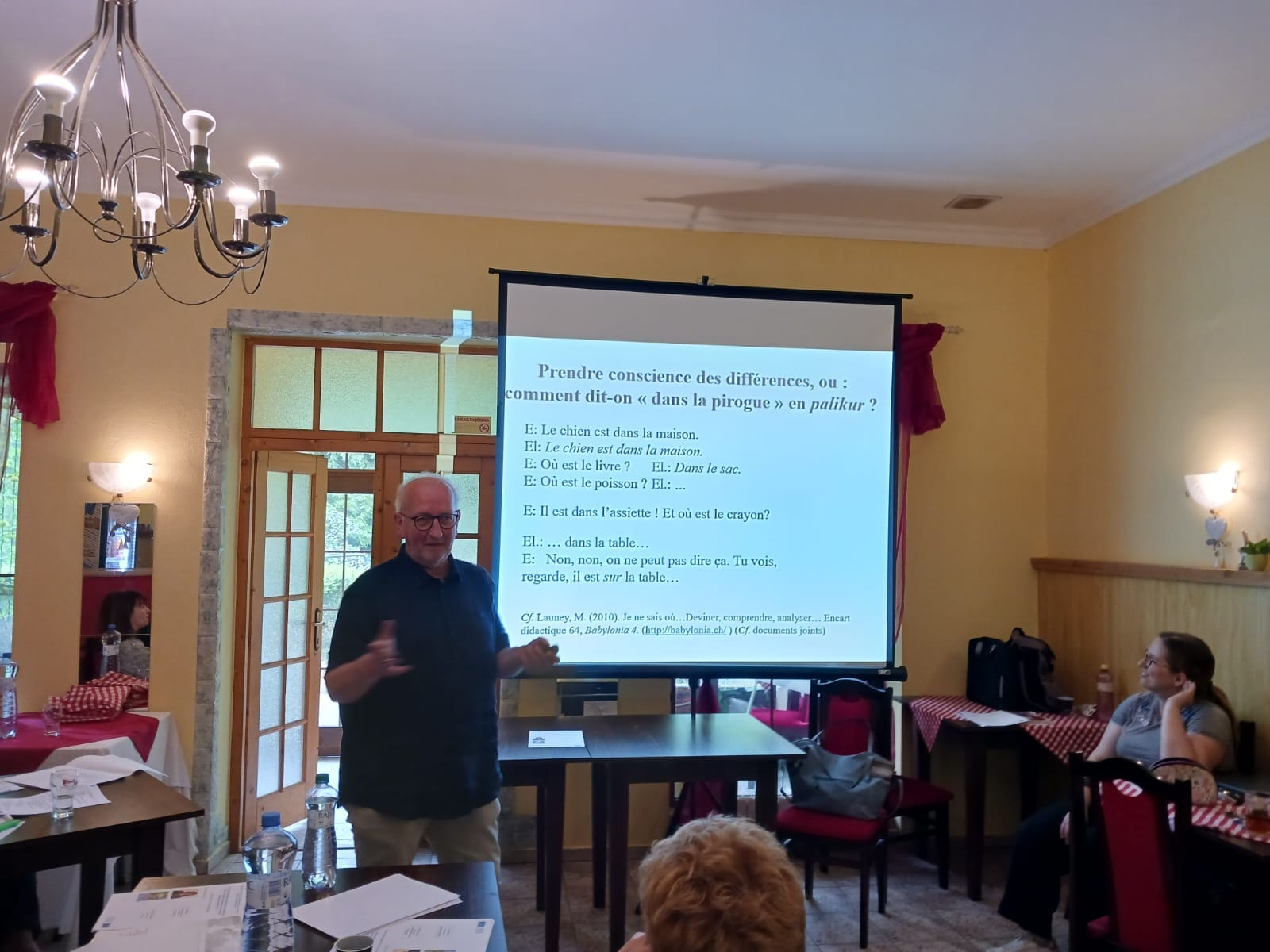
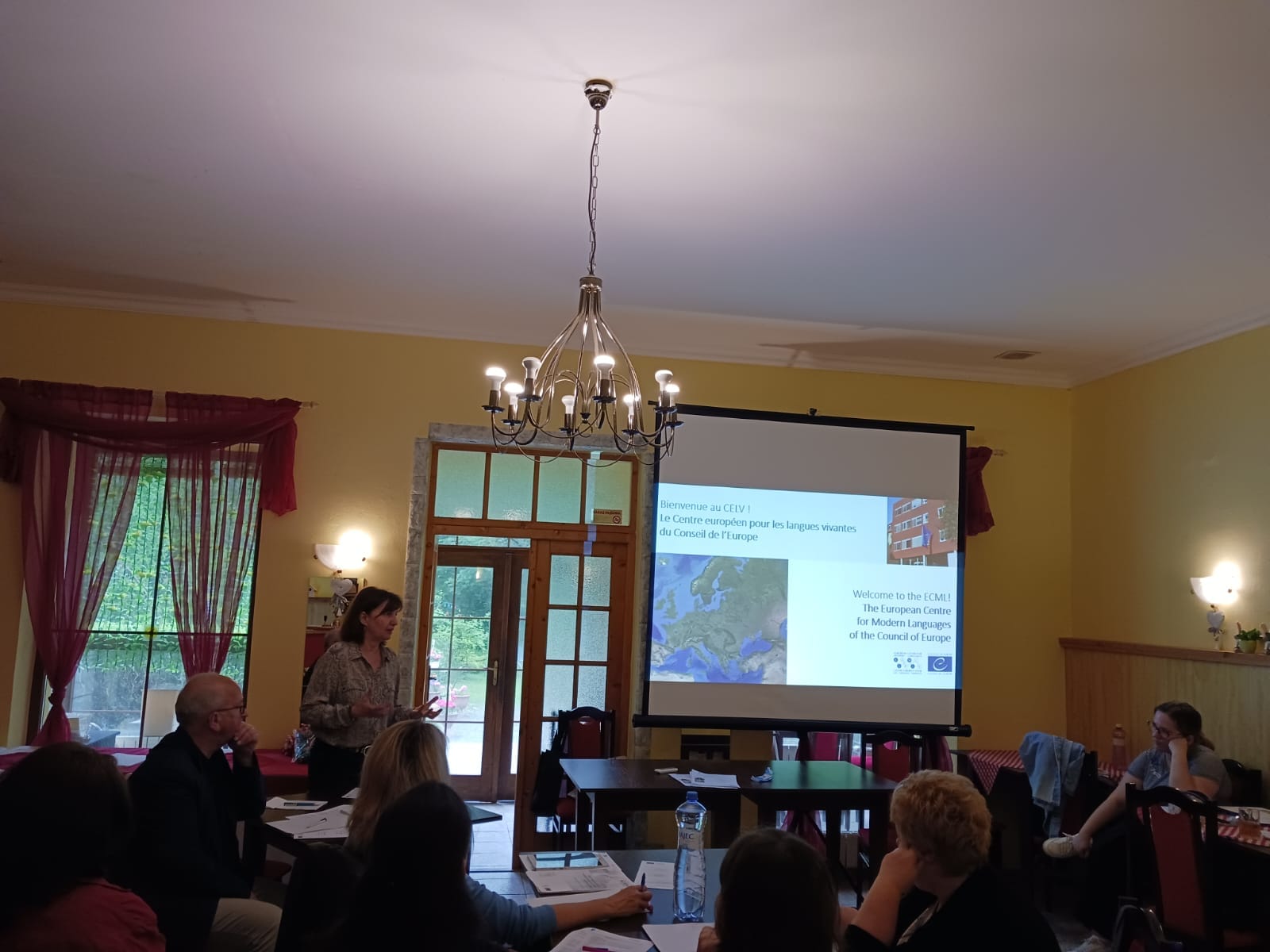
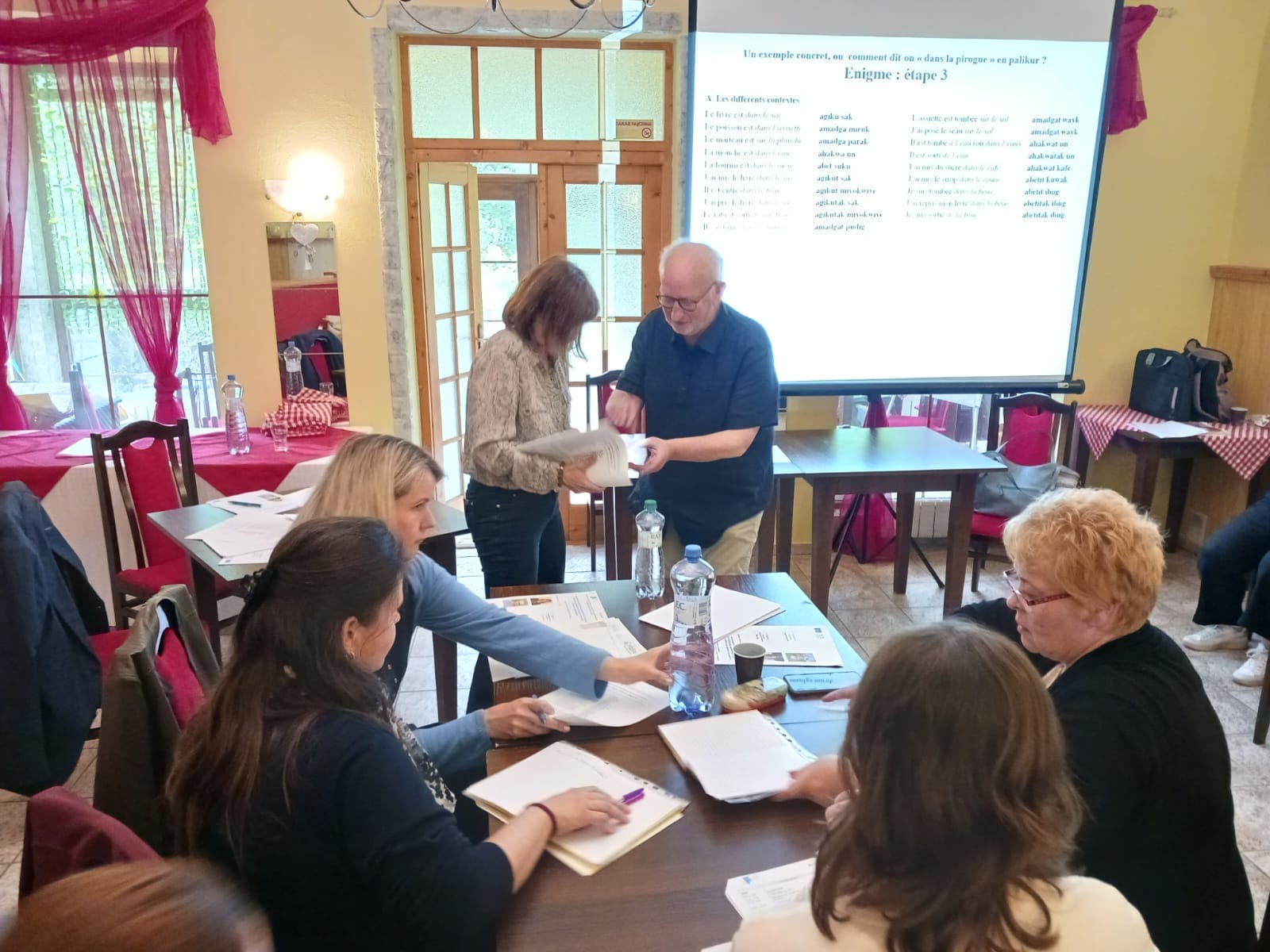
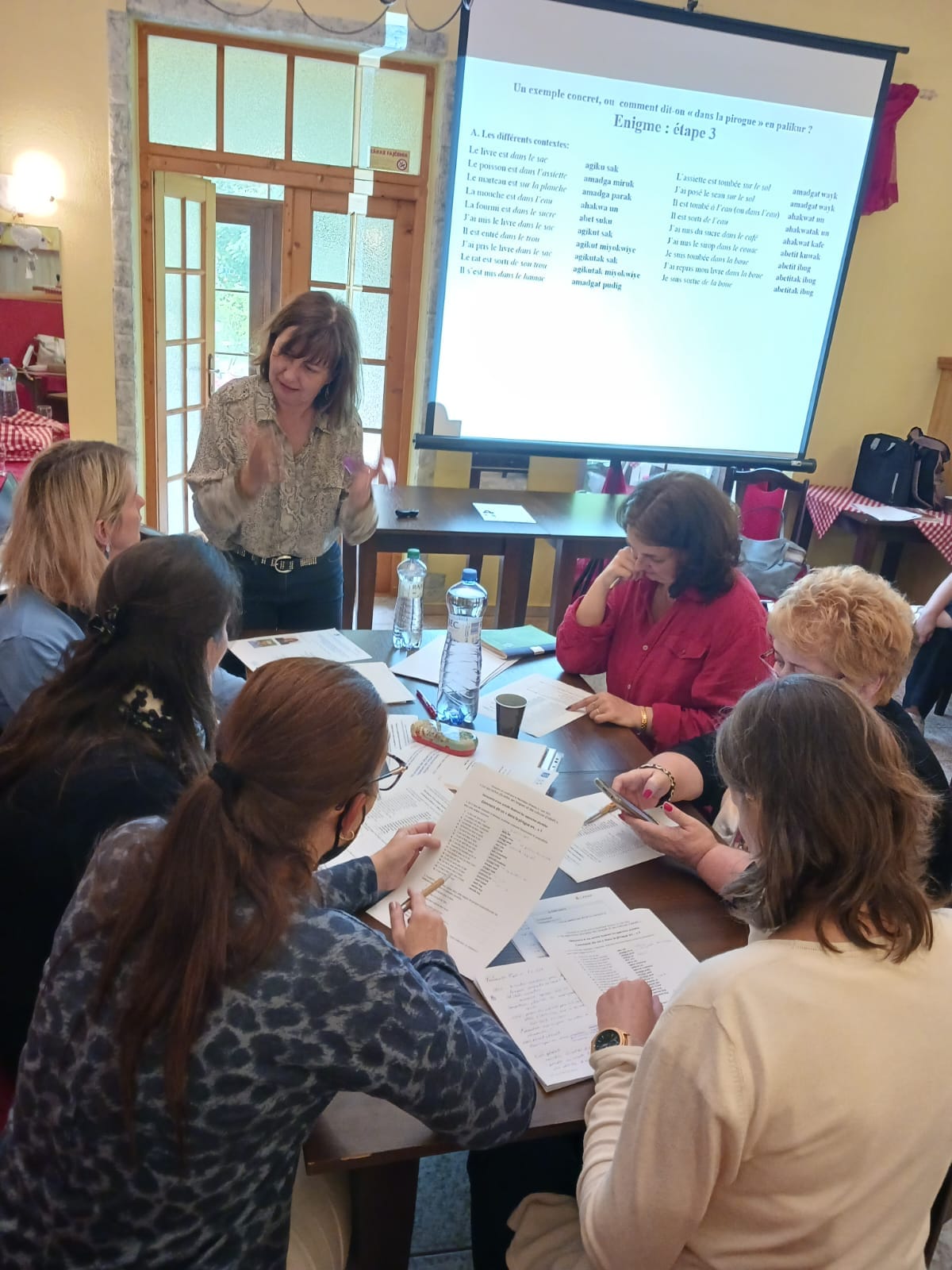

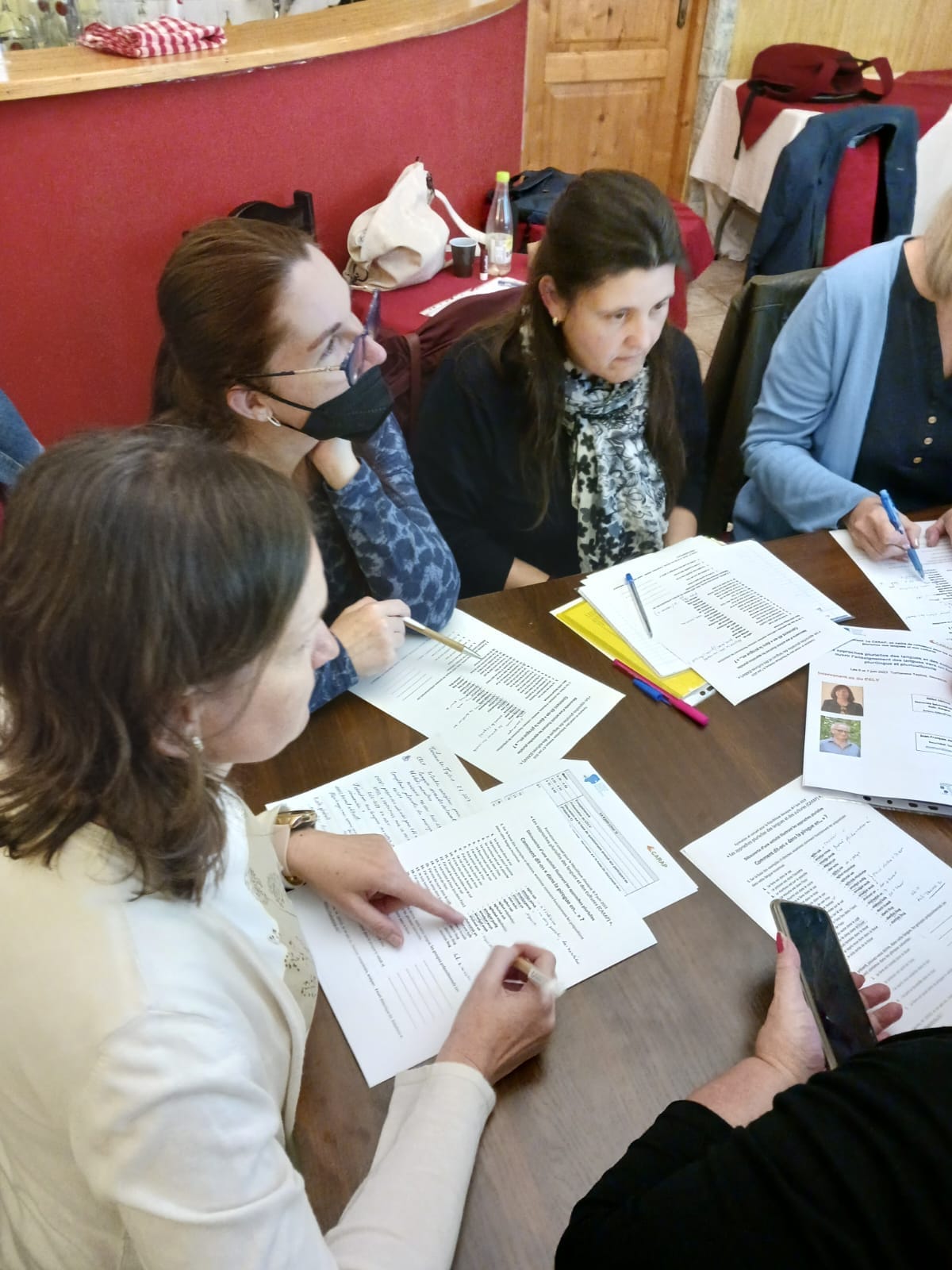
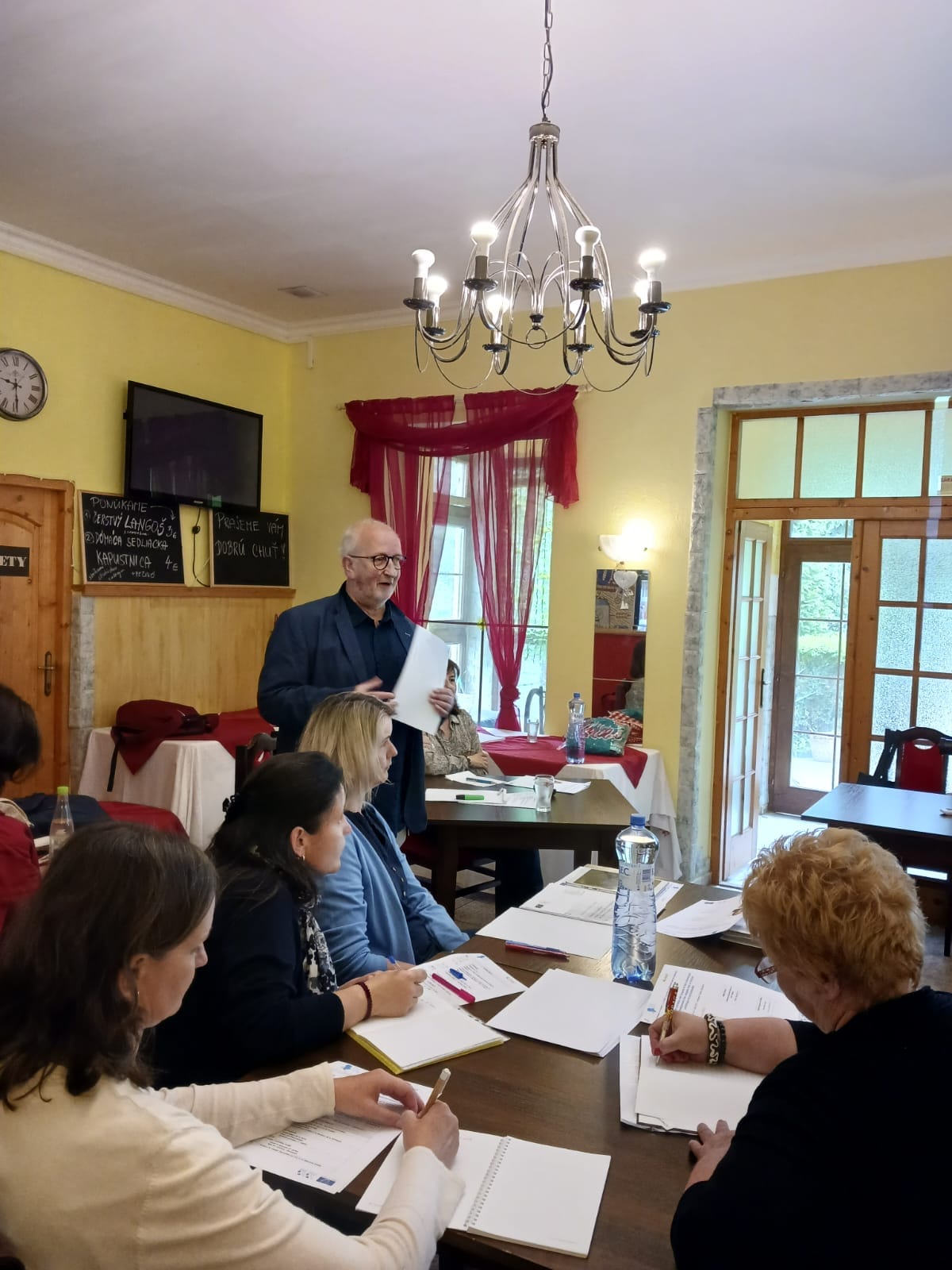
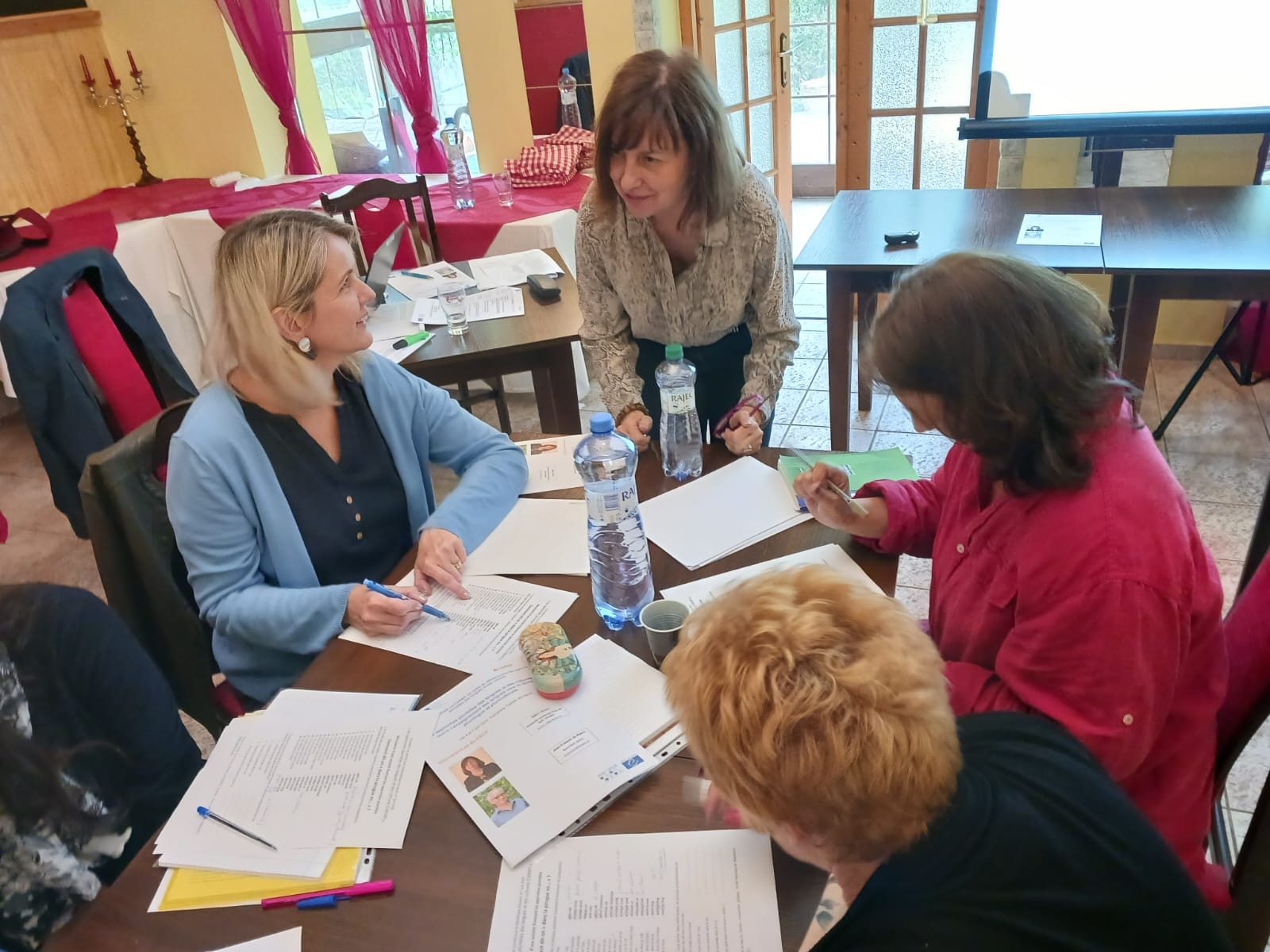
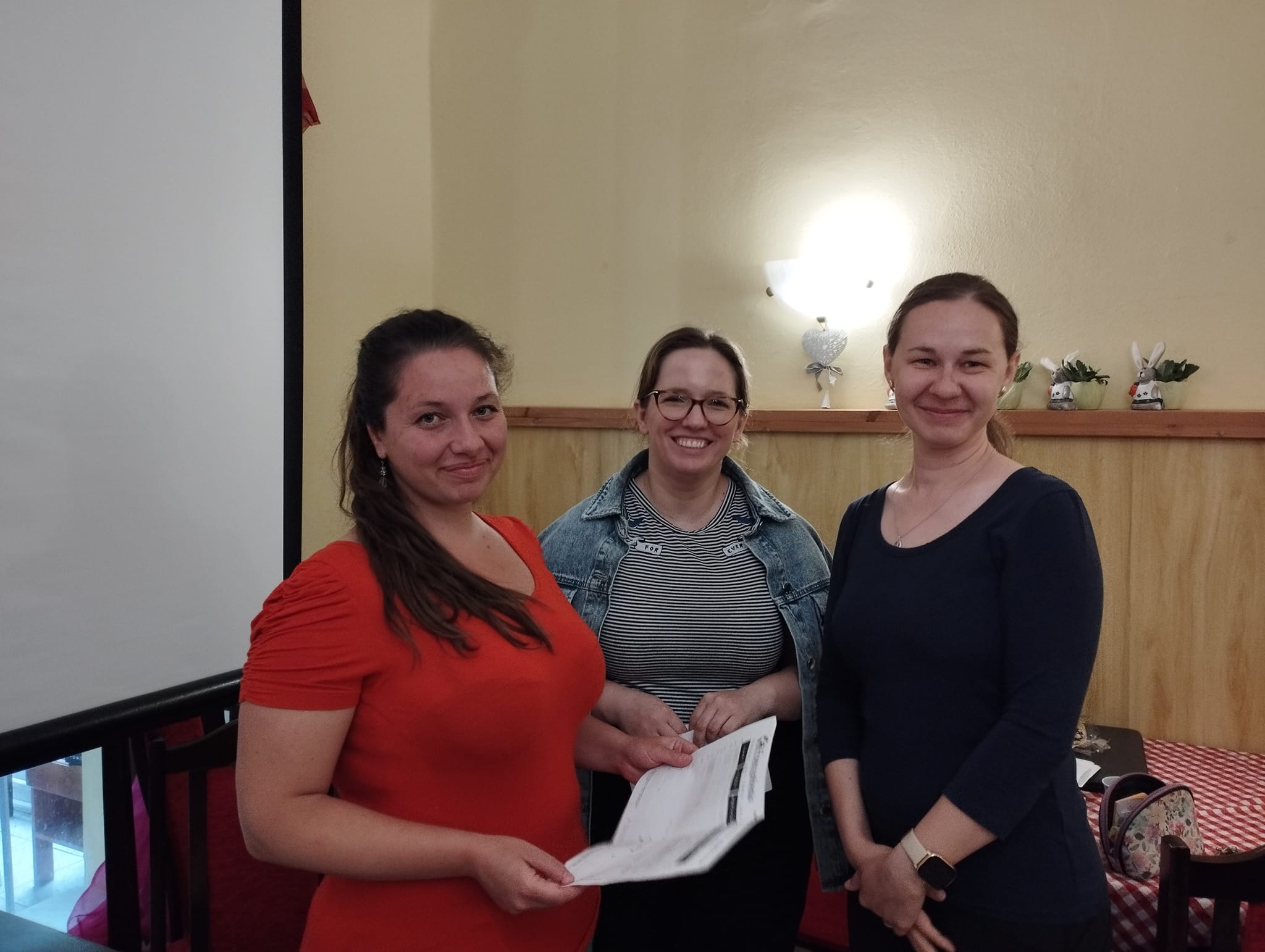
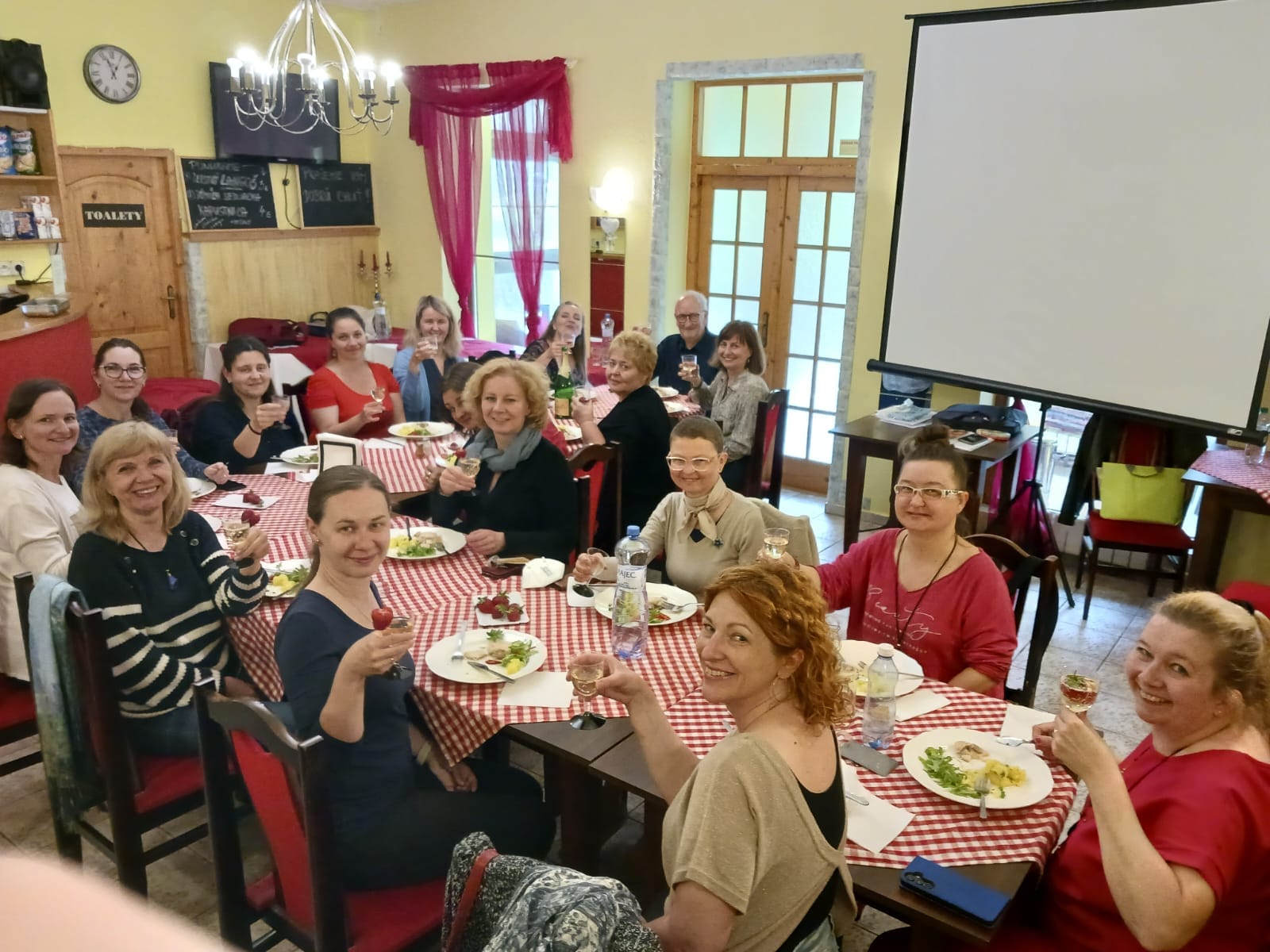
28.08.2023
Joint national training workshop "Supporting Multilingual Classrooms" (20 – 21 June 2023, Tatranská Lomnica, Slovak Republic)
Local organisers: Denisa Ďuranová (National Institute of Education and Youth, Slovak Republic) and Jitka Tůmová (National Pedagogical Institute, Czech Republic)
ECML experts: Terry Lamb, United Kingdom; Catherine Carré-Karlinger, Austria
Participants: 9 participants from the Slovak Republic, 10 participants from the Czech Republic (foreign language teachers/teachers of other subjects, teachers of the language of schooling, teachers of the language of schooling as a second language, school administrators, school advisers, policymakers)
“On 20 – 21 June 2023 the European Centre for Modern Languages of the Council of Europe (ECML) in cooperation with the National Institute of Education and Youth in the Slovak Republic and the National Pedagogical Institute in the Czech Republic carried out a two-day workshop on Supporting Multilingual Classrooms. The workshop, resulting from a joint initiative of the ECML and European Commission, was organised in the Slovak Republic for the fourth year, and in 2023 it was the first international workshop involving two countries - bringing together both Slovak and Czech experts.
One of the main reasons behind this joint event is that curriculum reform for primary and lower secondary education is underway in both the Slovak Republic and the Czech Republic, with a priority on the educational standards for Slovak/Czech as a second language. This is due to the increasing numbers of pupils with migrant backgrounds, with many coming in particular from Ukraine as a result of the ongoing war.
The primary aims of the two-day workshop were to: promote access to quality education for migrant children; bridge the gap between foreign pupils and other pupils; strengthen teachers' professional competences in the field of assessment and evaluation of pupils' language competences; improve the quality of language teaching and to support the development of plurilingual competences of all pupils in multilingual classrooms, based on the linguistic and cultural diversity of pupils. The workshop was also devoted to international networking among participants and experts of the international initiative.
The workshop focused on: experiences and practices in the field of language education of migrant children; reflection on attitudes towards linguistic and cultural diversity; plurilingual activities and classroom management; development of the plurilingual dimension in all subjects; issues of assessment in multilingual schools/classrooms; building relationships and collaboration between schools and the community.
The workshop facilitators explained how to work with parents, plan activities, promote inclusion and collaboration with other actors, such as school organizations. Participants identified priorities that will enrich their own practice.
The video developed during the event provides a flavour of the atmosphere and collaborative spirit during this very successful Supporting Multilingual Classrooms workshop.
More information about the Supporting Multilingual Classrooms workshop in the Slovak Republic is available at https://www.statpedu.sk/sk/vyskum/vzdelavacie-aktivity/podpora-multilingvalnych-tried-iv/"
Denisa Ďuranová in collaboration with Jitka Maříková Tůmová
ECML project website: Supporting multilingual classrooms – EU-ECML cooperation agreement 2023 "Innovative methodologies and assessment in language learning"
18.07.2022
National training workshop "Supporting Multilingual Classrooms" (5 – 6 May 2022, Bratislava, Slovak Republic)
Local organiser: Denisa Ďuranová, Methodology-Pedagogy Centre
ECML experts: Terry Lamb, United Kingdom; Mercè Bernaus, Spain
Participants: 14 (foreign language teachers, teachers of other subjects, teacher educators, teachers of the language of schooling, special educators)
“In the Slovak Republic, the Supporting Multilingual Classrooms workshop was a great opportunity to promote a positive attitude towards linguistic and cultural diversity by developing an understanding of the principles and values underlying pluralistic and intercultural approaches. It allowed to improve the quality of teaching and to support the development of plurilingual competences of teachers by building on the linguistic and cultural diversity of their pupils. The participants raised their awareness of the value of plurilingualism and multilingual environment in order to achieve educational success and to support the inclusion of children with a migrant background. The workshop was focused on valuing all languages – challenging assumptions, plurilingualism as a resource in the language classrooms, benefitting from multilingualism across school subjects, democratic classrooms, scaffolding learning – supporting second language development across the curriculum, opening the school to plurilingual approaches, developing collaborative projects.
Information about the Supporting Multilingual Classrooms workshop is available online on the National Institute for Education website: https://www.statpedu.sk/sk/vyskum/vzdelavacie-aktivity/podpora-multilingvalnych-tried-iii/”
Denisa Ďuranová, local organiser, 29 June 2022
ECML project website: Supporting multilingual classrooms – EU-ECML cooperation agreement 2022 "Innovative methodologies and assessment in language learning"
11.01.2022
Language for Work (LfW): Supporting work-related second language learning in Slovakia
Date and format: online event held on 8 October and 26 November 2021.
Local organiser: Prof. Edita Hornáčková Klapicová, Constantine the Philosopher University in Nitra, Slovak Republic.
ECML experts: Matilde Grünhage-Monetti and Alexander Braddell.
Participants:
- Number of participants: 19 participants (17 from Slovakia and Ukraine, 1 from Poland, 1 from Italy).
- Participants’ profiles: professors from universities in Slovakia, Ukraine, Austria and Poland, faculty and staff members from Constantine the Philosopher University in Nitra (Slovak Republic) and National Institute for Education in Slovakia, Federation of employers' associations of the Slovak Republic.
- Universities represented: Constantine the Philosopher University in Nitra, Slovak University of Agriculture in Nitra, University of Zilina (Slovakia); University of Gdańsk (Poland); Uzhgorod National University (Ukraine).
An international participatory training and consultancy event facilitated online by experts from the European Centre for Modern Languages, Matilde Grünhage-Monetti and Alexander Braddell, was held online on 8 October and 26 November 2021. During this event, researchers from universities in Slovakia, Ukraine and Poland and members of Federation of employer's associations of the Slovak Republic were able to learn about the following important steps in supporting work-related second language learning:
- How to do preliminary ethnographic research in companies on the background of the migrant workers and their needs and on the employer’s expectations.
- The schemes and strategies for supporting L2 learning at work demonstrated through the case of different countries and their experience with implementing these schemes and strategies.
- How to provide sustainable support for L2 learning in different contexts (demonstrated on the case of Sweden, Germany, UK, Italy).
- How to develop instruction manuals and other useful materials (“short, sweet and simple”), identifying the expectations of the employers, creating the appropriate content, editing, pragmatic standardization (demonstrated on concrete examples).
- Competences of the different actors.
- Language advocates and mentors. Demonstrated on the peer coaching scheme in Sweden (health and social care, migration background, employee supported by the employer, training, social aspects between the employee and the patient). Language advocate programme.
The learning event “Language for Work: Supporting work-related second language (L2)” was organised by Constantine the Philosopher University in Nitra, Slovakia (www.ukf.sk/en/), in cooperation with the National Institute for Education in Slovakia (www.statpedu.sk/en/).
Edita Hornáčková Klapicová (local coordinator for the Slovak Republic)
Department of translation studies
Constantine the Philosopher University in Nitra, Slovakia
*****
Slovak version
Jazyk pre prácu: Podpora vzdelávania v druhom jazyku v pracovnom kontexte
Dňa 8. októbra a 26. novembra 2021 sa pod vedením expertov z Európskeho centra pre moderné jazyky (ECML) Dr. Matilde Grünhage-Monetti a Dr. Alexandra Braddella uskutočnilo virtuálne medzinárodné podujatie “Školenie a poradenstvo”. Počas tohto stretnutia mali výskumní pracovníci z univerzít zo Slovenska, Ukrajiny a Poľska a členovia Asociácie zamestnávateľských zväzov a združení SR možnosť získať nové informácie o vzdelávaní v druhom jazyku v pracovnom kontexte v krajinách EU a oboznámiť sa so schémami, ktoré sa pri tomto druhu vzdelávania v súčasnosti uplatňujú.
Hlavným organizátorom podujatia “Jazyk pre prácu: podpora vzdelávania v druhom jazyku v pracovnom kontexte” bola Univerzita Konštantína Filozofa v Nitre. https://www.ukf.sk/en/
Spoluorganizátorom podujatia bol Štátny pedagogický ústav v Bratislave. https://www.statpedu.sk/en/
Edita Hornáčková Klapicová (hlavný koordinátor pre SR)
Katedra translatológie, Filozofická fakulta
Univerzita Konštantína Filozofa v Nitre
28.06.2021
Supporting Multilingual Classrooms: ECML online national training workshop (16 – 17 June, Slovakia)
Local organiser: Denisa Ďuranová, National Institute for Education
ECML experts: Katja Schnitzer, Switzerland; Chantal Muller, Belgium
Participants: 23 (primary and secondary schools with the Slovak language as a language of instruction, primary and secondary schools with a national minority language as a language of instruction)
"In the Slovak Republic, the workshop Supporting multilingual classrooms was a great opportunity to promote a positive attitude towards linguistic and cultural diversity by developing an understanding of the principles and values underlying pluralistic and intercultural approaches. It allowed to improve the quality of teaching and to support the development of plurilingual competences of teachers by building on the linguistic and cultural diversity of their pupils. The participants developed a greater awareness of the value of plurilingualism and the language competence required in the language of schooling in order to achieve educational success and to support the inclusion of children with a migration background. The June workshop was focused on teaching in a multilingual environment and providing language support for these children, especially on the following topics: multilingualism and plurilingualism – identities and contexts; pluralistic approaches in the language classroom; benefiting from multilingualism across the curriculum; language and cultural awareness; developing competences supporting second language development across all subjects; whole school approaches to multilingualism and plurilingualism.
Information about the workshop Supporting multilingual classrooms is available online: https://www.statpedu.sk/sk/vyskum/vzdelavacie-aktivity/podpora-multilingvalnych-tried-ii/"
Denisa Ďuranová, local organiser, 24 June 2021
ECML project website: Supporting multilingual classrooms – EU-ECML cooperation agreement 2020-2021 "Innovative methodologies and assessment in language learning"